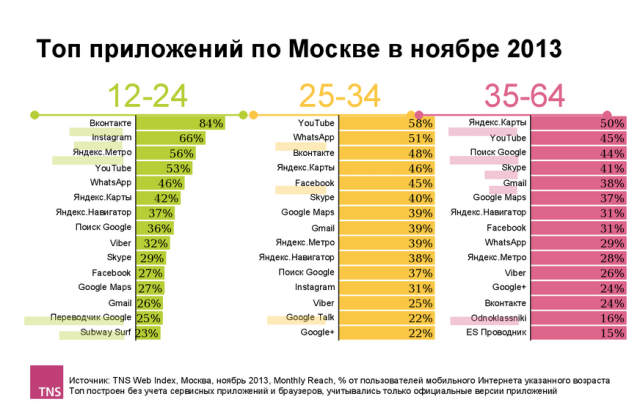Vkontakte, a social networking site known as the “Facebook of Russia”, is facing legal action from nine music labels including EMI, Sony and Warner over what they claim is the unlawful distribution of some 6,000 tracks of licensed music on the site from artists like Madonna, Linkin Park, Metallica and Beyonce. The lawsuits are being prepared for filing after the holidays, according to the Russian newspaper Izvestia.
Pavel Durov, the founder and CEO of Vkontakte, says the site is prepared to negotiate with them, as it has with video rightsholders. “If some music companies wish their content to be deleted from VK, we, as always, are willing to comply with their wish,” he told TechCrunch. “On the other hand, we are also ready to seek mutually beneficial ways to monetize their content. This year we managed to find such a solution for video content and we are optimistic about the audio section of VK as well.
“Of course, if no agreement with large record companies is reached, their content will be deleted and VK music service will rely mostly on independent artists.”
If the suits go ahead, they look like they may be some of the first big moves from music rightsholders to go after a major site in the wake of a new anti-piracy law in the country designed to protect copyright better.
That law originally was aimed to focus more on video content but there are some who hope to extend it to include music. The law enforces improved communication by requiring site owners to provide easy-to-find contact details, including real-world addresses, and forms for rightsholders to file complaints faster. If a site fails to comply with an infringement complaint, it faces a block at the ISP level.
Leonid Agronov, the head of Russia’s National Federation of the Music Industry (Russia’s RIAA), told Izvestia that his organization has long been trying to negotiate with Vkontakte over music distributed through its site. The NFMI claims that Vkontakte does not pay for streamed plays, neither by charging users directly nor by paying the licensing fee directly. But that does not mean that the social network is not profiting.
“[Vkontakte] shows ads while people listen to music. So they make money on it,” he said.
In the case of removing these tracks, it puts Vkontakte in a double bind, where it’s damned if it doesn’t and damned if it does: on the one hand, it risks legal action from larger companies and potential ISP blockage; on the other, it faces backlash from its users, who look to it as a content portal.
This is not Vkontakte’s first brush with copyright holders. Izvestia notes that in June of this year, the site — which has become a go-to place for users in Russia for music and other digital content sharing (including a lot of legal content) — took down some 7,000 music tracks. Then in August, Vkontakte signed a deal with UK monitoring company Muso to track and remove illegal music from the site. Muso’s CTO and co-founder James Mason tells me that it continues to work with Vkontakte to take down free music that infringes the copyright rightsholders that Muso represents.
“Over the years VK has become the principal tool for music discovery among Russian-speaking population,” Durvo says. “As a result, there are plenty of artists and music companies that use VK as the main way to promote their work. We hope that more and more talented artists will get exposure with the use of our music service.”
In January 2012, Vkontakte lost a case against Russian label Gala, which said the site was allowing users to upload and share tracks by Russian artists in breach of copyright law. It was fined $7,000. It has won other cases, such as a case against Russian label Soyuz this past October, again over copyright.
It is also not Vkontakte’s first brush with Russian legal forces. In May this year, the Russian regulator Roskomnadzor blocked the site. Although it claimed to have done this by mistake, the move was a bit close to the bone, considering that the site has been a strong advocate of free speech, including content critical of the government. One of the social network’s investors, United Capital Partners, has ties to the Kremlin. It picked up its stake in Vkontakte in a secondary sale.
Russia is Europe’s biggest internet market with over 61 million users. But it also has the more dubious distinction of being one of the worst repeat offenders globally when it comes to digital content copyright infringement. That has been one of the big gating factors for legit services to enter the market — not least because those businesses may actually find it hard to find paying users, when free (but illegal) content is so easy to get.
But with companies like Apple finally launching iTunes in the country, the tides are slowly shifting — something regulators have been hoping to encourage with anti-piracy legislation.
According to analysts at TNS, Vkontakte is one of the most visited sites in Russia, overall coming in third after portals like Mail.ru and Yandex (which each account for some 30 aggregated URLs). Looking specifically at Moscow, Russia’s biggest and pace-setting market, Vkontakte is the leader among under-24s and third in the 25-34 age bracket:

In this particular case, which will be filed in court in St Petersburg (where Vkontakte is based), the plaintiff group includes a mix of international and Russian labels: Sony, Universal Music, Warner Music, EMI, Gala, Navigator, Studio Soyuz and Nikitin Media. The case could last between a couple of months and two years, Izvestia writes.
Updated with comment from Vkontakte CEO Pavel Durov and Muso CTO James Mason.
